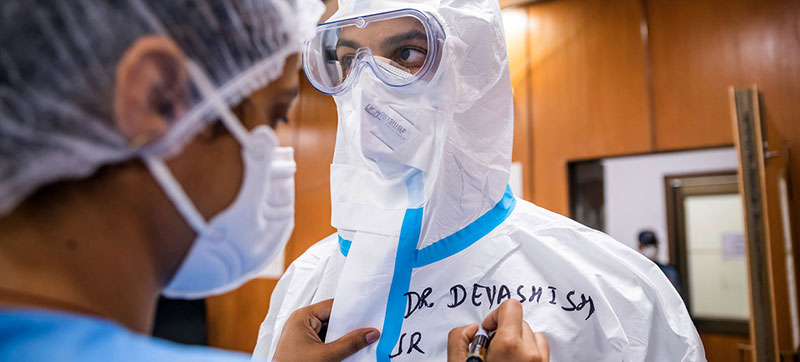 Pandemic
Pandemic
Current system will not protect us from the next pandemic, ‘which could happen at any time’
New York: Efforts to reform global pandemic preparedness and response are happening too slowly, the World Health Organization’s (WHO) Independent Panel for Pandemic Preparedness and Response said on Monday.
Presenting the findings of a six-month accountability report, Co-chairs Helen Clark, former Prime Minister of New Zealand, and Ellen Johnson Sirleaf, former President of Liberia, warned that “uneven” progress in addressing the COVID-19 pandemic continues to cause illness, deaths and economic losses.
Calling for Heads of State and Government to come together to make faster progress, especially at the UN General Assembly, the two leaders pointed out that with much of the groundwork done, now is the time to end the pandemic and prepare for the next global health threat.
Immediate action needed
In assessing the progress made since last May, the report covered the areas of leadership and governance, financing, equity, a new legal instrument, and a stronger WHO.
Since May, the report noted that 90 million more people have contracted COVID 19, and 1.65 million have died.
Following the deep-dive into COVID-19 responses, immediate action was recommended for a package of international, interlinked reforms to stop a future outbreak.
“Given the scale of devastation from this pandemic and its continuing impact on people across the globe, the Panel resolved to document fully what happened and why, and to make bold recommendations for change”, said Ms. Clark.
Unequal attention
Unfortunately, vaccine inequity has changed very little. And in the poorest countries, less than one per cent of the population are fully vaccinated.
Although wealthy countries have publicly pledged donations, Ms. Sirleaf observed that “just a fraction of redistributed doses have actually been delivered”.
The co-chairs maintained that the pledged donations must be transparently planned to quickly deliver the vaccines and to develop, adding that “a true end-to-end global public goods model remains the answer”.
Much more to be done
The former leaders pointed to a speech delivered by Secretary-General António Guterres in September calling for the panel’s recommendations to be a starting point for urgent reforms to the global health architecture.
The co-chairs highlighted a growing momentum for a UN global summit as well as increasing support for a new top-level political leadership Global Health Threats Council to mobilize the strong collective commitment required for global health security, which should provide “much-needed leadership and accountability”.
New financing
The report stressed that “governance without finance lacks teeth; and finance without governance lacks accountability”.
The Independent Panel noted that the Global Health Threats Council should also allocate and monitor funding from a new financing mechanism that supports pandemic preparedness and responses.
At least $10 billion in new financing annually and up to $100 billion in a pool of response funding is needed for a pandemic threat, the report said.
“Our message is simple and clear: The current system failed to protect us from the COVID-19 pandemic”, said Ms. Sirleaf. “And if we do not act to change it now, it will not protect us from the next pandemic threat, which could happen at any time”.
Support Our Journalism
We cannot do without you.. your contribution supports unbiased journalism
IBNS is not driven by any ism- not wokeism, not racism, not skewed secularism, not hyper right-wing or left liberal ideals, nor by any hardline religious beliefs or hyper nationalism. We want to serve you good old objective news, as they are. We do not judge or preach. We let people decide for themselves. We only try to present factual and well-sourced news.







